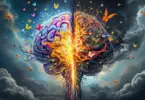By John Patterson
Staff Writer for Wake Up World
How Ibogaine Hydrochloride and 5-MeO-DMT Show Promise in Treating PTSD and Traumatic Brain Injury
In a ground breaking analysis, it has been revealed that psychedelics can be a ray of hope for U.S. special operations forces veterans who have long grappled with debilitating mental health issues, such as post-traumatic stress disorder (PTSD) and cognitive impairment linked to traumatic brain injury. The study, led by researchers from The Ohio State University, showcases the profound impact of a novel treatment approach using the psychedelic substances ibogaine hydrochloride and 5-MeO-DMT, found to alleviate depression, anxiety, and cognitive difficulties in these veterans.
[pro_ad_display_adzone id=”110028″]
The Psychedelic Solution
The treatment protocol involved a combination of ibogaine hydrochloride, derived from the West African shrub iboga, and 5-MeO-DMT, a psychedelic substance secreted by the Colorado River toad. While both of these substances are categorized as Schedule I drugs under the U.S. Controlled Substances Act, this study highlights their potential to revolutionize mental health treatment.
Alan Davis, lead author and associate professor at Ohio State’s Center for Psychedelic Drug Research and Education (CPDRE), emphasized the unique challenges faced by special operations forces veterans. “This build-up of exposure to these difficulties seems to produce a cluster of challenges that include traumatic brain injury, which we know predisposes people to mental health problems,” he said.
Unforeseen Cognitive Improvements
One of the most striking results of this study was the unexpected improvement in cognitive functioning linked to traumatic brain injury. Many of the veterans who participated in the clinic’s retreat program had experienced head injuries during their service, leading to problems such as memory loss, irritability, sleep disturbances, and tinnitus. The study found that a single oral dose of ibogaine hydrochloride and incremental inhalation doses of 5-MeO-DMT led to significant improvements in cognitive functioning among the veterans.
The study, published in the American Journal of Drug and Alcohol Abuse, underlines the groundbreaking potential of psychedelics in treating complex psychiatric symptoms, particularly in a population exposed to repeated traumatic events as part of their duty.
Transformative Results
The study involved 86 veterans who sought care for a range of issues, including memory problems, brain injury, depression, anxiety, PTSD, sleep disturbances, anger, and fatigue. The treatment approach included a combination of ibogaine hydrochloride and 5-MeO-DMT, along with preparation and reflection sessions.
[pro_ad_display_adzone id=”110030″]
The results were remarkable. Participants reported significant improvements in self-reported symptoms of PTSD, depression, anxiety, insomnia severity, and anger. Additionally, there was a substantial increase in satisfaction with life, both one month after treatment and in the three- and six-month follow-up assessments. The improvements extended to reductions in disability and post-concussive symptoms, as well as substantial increases in psychological flexibility and cognitive functioning.
The findings suggest that psychedelic experiences may positively impact cognitive functioning, and the increased psychological flexibility correlated with reduced mental health symptoms. These results align with previous research highlighting the potential of psychedelics to enhance mental health and well-being.
Spiritual and Insightful Transformations
The study also revealed that the majority of attendees reported desirable changes in their attitudes, behaviors, and relationships following treatment. One month after the sessions, almost half of the veterans considered the psychedelic experience to be the most spiritually significant or psychologically insightful event of their lives. For 17.1%, it was the most challenging experience they had ever encountered.
Paving the Way for Psychedelic Therapy
Researchers, in their analysis, took a cautious approach to interpreting the outcome data, factoring in the possibility that not all attendees had completed follow-up surveys due to insufficient relief from the treatment. Nonetheless, the study’s findings offer a glimmer of hope for a population of veterans with complicated trauma histories, shedding light on the potential of psychedelic-assisted therapies.
Currently, Ohio State is studying psilocybin-assisted therapy as a potential treatment for PTSD among military veterans, further emphasizing the importance of continuing to explore psychedelic-assisted therapies through rigorous clinical trials.
The study, with co-authors Yitong Xin and Nathan Sepeda from Ohio State and Lynnette Averill from Baylor College of Medicine and the U.S. Department of Veterans Affairs, is a significant step forward in the quest to provide comprehensive, effective mental health treatment to those who have dedicated their lives to serving their country.
In a world where traditional therapies often fall short, this research opens the door to a promising new frontier in mental health care. Psychedelics may well be the key to unlocking the healing potential for veterans who have endured extraordinary hardships. This study serves as a clarion call for further exploration, bringing hope to those who have sacrificed so much for the greater good.
Reference:
- Alan Kooi Davis, Yitong Xin, Nathan Sepeda, & Lynnette A. Averill. Open-label study of consecutive ibogaine and 5-MeO-DMT assisted-therapy for trauma-exposed male Special Operations Forces Veterans: prospective data from a clinical program in Mexico. The American Journal of Drug and Alcohol Abuse, 2023 DOI: 10.1080/00952990.2023.2220874
About the author:
John Patterson is an avid writer and researcher who delves into the latest scientific research. With an insatiable curiosity, he translates complex concepts into accessible narratives, allowing readers to embark on a journey of discovery. Through his work, John bridges the gap between experts and the public, igniting curiosity and inspiring meaningful conversations about scientific breakthroughs.
[pro_ad_display_adzone id=”110027″]







